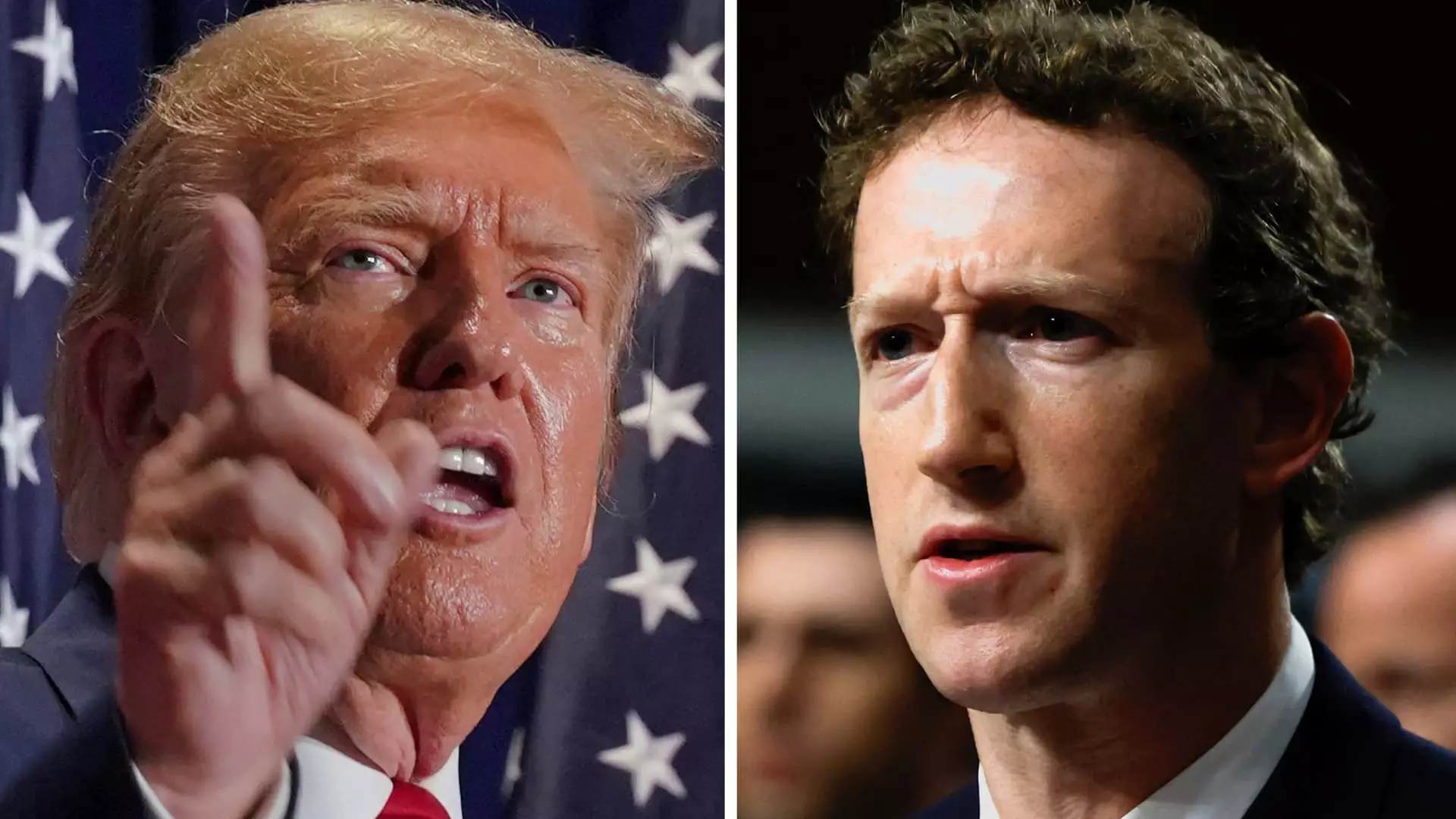Former U.S. President Donald Trump has raised concerns about the potential ban of the Chinese-owned social media app TikTok in the United States. He believes that such a ban would ultimately benefit Meta’s Facebook platform, making it even larger and more powerful. Trump has expressed his views on national security and data privacy issues associated with TikTok, highlighting both the positive and negative aspects of the platform. Despite his reservations about TikTok, Trump also acknowledges the platform’s popularity among users, especially younger demographics who have embraced it.
TikTok, owned by Chinese internet giant ByteDance, has gained immense popularity worldwide in recent years, particularly for its short video format. However, concerns have been raised by regulators about the potential risks of user data being shared due to the app’s Chinese ownership. The Chinese government’s National Intelligence Law of 2017 requires organizations to collaborate with state intelligence work, raising red flags about data privacy and security. The Trump administration previously attempted to force ByteDance to divest TikTok, but the efforts were unsuccessful.
In the present day, U.S. lawmakers are renewing efforts to address the concerns surrounding TikTok through proposed legislation that could either compel ByteDance to divest the app or implement a complete ban. President Joe Biden has also expressed national security apprehensions about TikTok and indicated his willingness to support a ban if approved by Congress. Despite his prior calls for TikTok’s removal, Trump now warns against a ban, fearing that it would only serve to bolster the dominance of Facebook in the social media landscape.
While Trump maintains his concerns about the national security risks associated with TikTok’s Chinese ownership, he also redirects attention to Facebook, highlighting similar issues related to privacy and security on the platform. Trump suggests that China could potentially exploit TikTok for intelligence purposes, posing a significant security risk. However, he emphasizes that banning TikTok would only benefit Facebook and other platforms, particularly Facebook, which he criticizes for its impact on the country, particularly during elections. Trump’s changing perspective on TikTok reflects a nuanced view of the interplay between national security, corporate competition, and social media influence.
The debate surrounding the potential ban of TikTok in the U.S. underscores broader discussions about data privacy, national security, and the influence of social media platforms. While concerns about TikTok’s Chinese ownership are valid, the unintended consequences of a ban must also be carefully considered. The intertwining of political rhetoric, corporate interests, and global security challenges complicates the regulatory landscape for tech companies operating in an increasingly interconnected world. As policymakers navigate these complexities, the impact of their decisions on platforms like TikTok and Facebook will undoubtedly shape the future of social media governance and international relations.


Leave a Reply